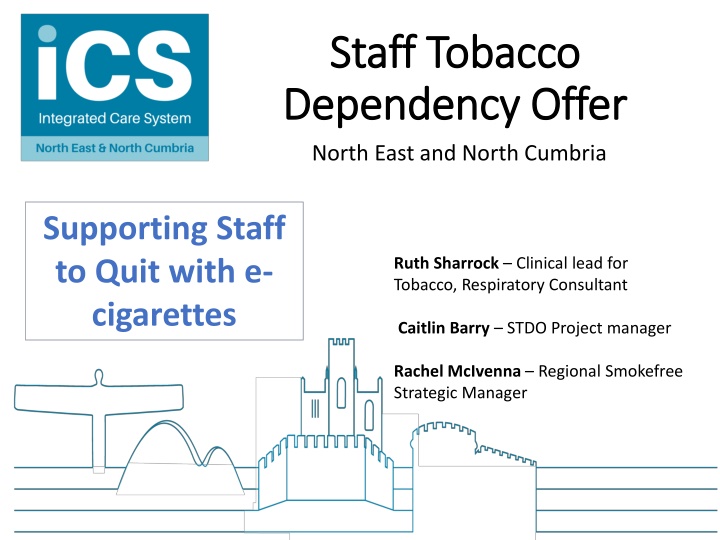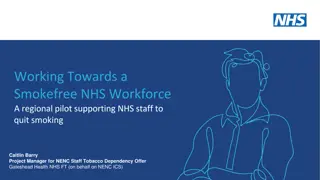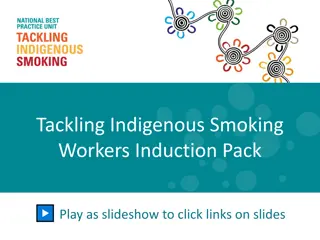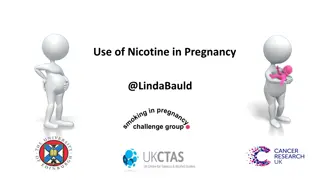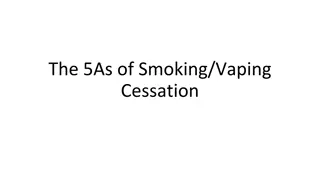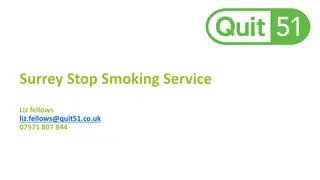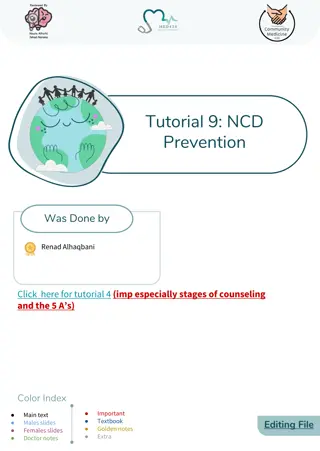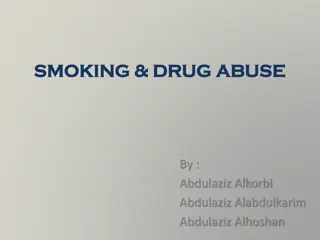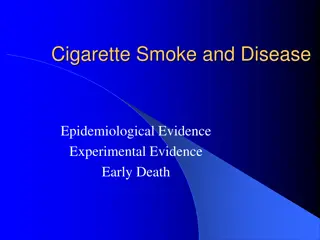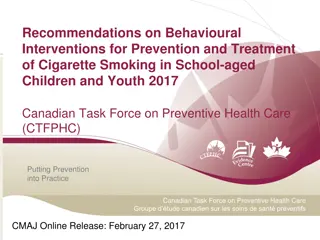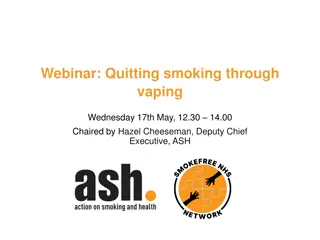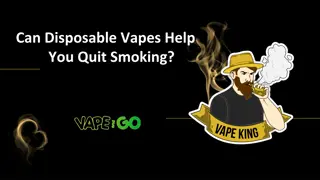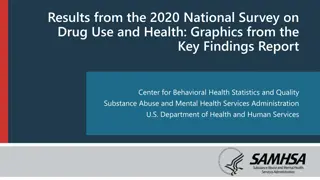Supporting Staff to Quit Smoking: E-Cigarette Intervention Program Overview
Overview of a program in North East and North Cumbria offering support to staff to quit smoking using e-cigarettes, led by healthcare professionals. The initiative aims to remove barriers to quitting and promote behavior change, providing easy access, non-judgmental support, and free NRT/e-cigarette products. Early data shows positive outcomes with high uptake and successful quitting rates. Staff feedback indicates appreciation for the available support.
Download Presentation

Please find below an Image/Link to download the presentation.
The content on the website is provided AS IS for your information and personal use only. It may not be sold, licensed, or shared on other websites without obtaining consent from the author.If you encounter any issues during the download, it is possible that the publisher has removed the file from their server.
You are allowed to download the files provided on this website for personal or commercial use, subject to the condition that they are used lawfully. All files are the property of their respective owners.
The content on the website is provided AS IS for your information and personal use only. It may not be sold, licensed, or shared on other websites without obtaining consent from the author.
E N D
Presentation Transcript
Staff Tobacco Staff Tobacco Dependency Offer Dependency Offer North East and North Cumbria Supporting Staff to Quit with e- cigarettes Ruth Sharrock Clinical lead for Tobacco, Respiratory Consultant Caitlin Barry STDO Project manager Rachel McIvenna Regional Smokefree Strategic Manager
Overview STDO Personal experience of supporting staff to quit, motivated by the visible impact of smoking on colleagues ill health, success of peer to peer advice. Behaviour change models awareness, capability, opportunity, motivation Easy, attractive, social, friendly How can we remove barriers to making a quit attempt to reduce risk of widening HI What is the role of e-cigarettes in supporting colleagues to quit PHASE 1 PHASE 2 Need to future proof this offer and keep existing services engaged Uplift existing LA services to deliver support and products to staff (ecig provision, mitigate voucher costs) Uplift to existing data management systems to collect staff status Extension of offer to all NHS staff within the region (covering 13 LAs) Hosted by County Durham and Darlington FT on behalf of NENC ICS Available to NHS staff working within 11 Foundation Trusts in the region Free NRT/E-Cigarette with or without behavioural support Ease of sign-up varied routes, non judgemental support congratulated on every step Out of hours access Postage of products Premium access to Smokefree app available to all Hosted by Gateshead Health NHS FT on behalf of NENC ICS (immediate mobilisation) FT engagement at challenging time; considered narrative, time pressured, opportunity to showcase work, competitive feedback to trusts
Early data and outcomes >1200 staff have registered Data reported on first 927 757 requested ecigarettes (81%) 170 requested NRT Of 757 who initially requested e-cigarettes 26 (3.4%) have either switched to NRT or had patch added. E-cigarette group where data has been pulled - None withdrawn from support - 48% abstinent from cigarettes at 4 weeks (self report) - 23% significantly cut down, but not fully quit keen for ongoing/additional support - 23% either not attempted to quit or have relapsed, all requested ongoing support - 3.4% requested change to or supplement with NRT - Small number of those who registered are uncontactable, but none have requested discontinuation of support NRT Group - 30 are past 12 week mark and reported successful quit - 30 have dropped out citing circumstance change - 110 ongoing support
Current Uptake Per Staff Group Data correct as of 6th Feb 2022 Uptake without comms Word of Mouth , nearly all request e-cigarette, >50% R+M
Previous Quit Attempts Data correct as of 6th Feb 2022
Staff Feedback I ve been looking to stop smoking for a while but didn t know where to start. To know this opportunity and support is available to me through my workplace is fantastic and I can t wait to get started. It s exactly what I need. Thank you so much! If I can give this a go anyone can, so easy to sign up . Feeling more determined than ever They re so pleased, I m embarrassed to admit I hadn t realised just how passionate they felt about me stopping until I had. (NHS Staff Member talking about their children s response to quitting smoking) As if stopping smoking wasn t hard enough you had the stress of spending all your spare time trying to sort out how and where you were going to get the tablets from. It was easier to walk to the corner shop and buy cigarettes. (NHS Staff Member talking about a previous quit attempt)
Challenges Who benefits from NRT plus vape? Who should aim for graduated quit versus swapping over, risks of relapse? Benefits of lead in time/risks of co-use? Especially shift workers What is the additional benefit of a prolonged support period? (There is a difference between ecigs and vapes with people staying engaged but struggling to quit) Does more time lead to more quits eventually? Variety of products/ changing market makes it harder to advise and train Sustainability of the offer does physical provision of device provide wider reach than self order process?
E-cigarettes to support quit attempts in Staff Appeal to harder to reach groups, those who don t contact SSS, R+M, word- of mouth referrals Achieve success without necessarily needing complex support extremely cost effective 50 versus 281 in our model, products alone Particular benefit to health care staff - cost benefit to users on low income - 50 versus 1000 for 12 weeks (20cpd) cost of living situation, can be used at work Difficult to measure benefits Significance of the gesture Prompts more quit attempts in peers because of visible usage in smoking areas Powerful enabler of conversations with patients when staff are able to draw on their own experiences
Any Questions? ruthsharrock@nhs.net Caitlin.barry1@nhs.net
